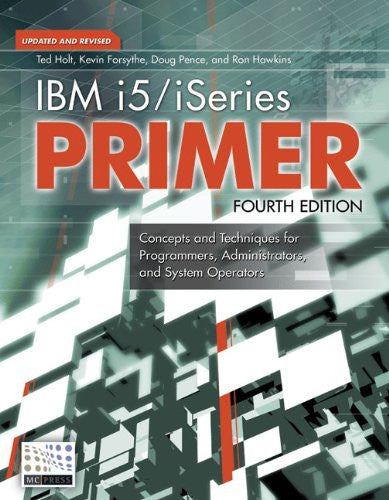One of the most frequent criticisms of businesses, including IBM, is that they don’t have their customers’ best interests in mind.
People who say this don’t understand business. Businesses are not charities; they exist to earn money for their owners.
But it is also a fact that businesses earn their money by serving customers. Businesses must give customers what they want when they want it—at a competitive and affordable price—or go out of business.
In other words, businesses are pulled in two opposing directions. This makes for a strong economy, because customers tend to get what they really need, not what they think they need and not what somebody else says they need. On top of that, customers get what they need at a good price, because businesses spend no more money than necessary to produce products, and they compete against one another to woo customers.
Having said all that, let me provide evidence that IBM does have our interests at heart—to a greater degree than we should expect.
You may have heard a rumor that IBM is considering adding a free-format “X” calculation specification type to RPG IV. This is only partially correct. The addition of a free-format RPG calculation spec is under consideration as a possible enhancement to RPG, but the proposal does not call for an “X” in column 6. IBM is not promising us anything, but the fact that this addition is being considered indicates the company’s concern for people like you and me and the organizations for which we work.
Appreciate the Old
To many AS/400 programmers, “programming” is synonymous with “RPG.” It is the only type of programming they know. It is the only type of programming they’ve ever done.
To many businesses, “software” is synonymous with “RPG.” Their software consists of dependable RPG programs that meet their needs.
However, the skills acquired by AS/400 programmers and the working programs that they developed did not come free. Human labor produced them, which places them in the category of corporate assets, or “wealth.” While this wealth (of both skill and technology) is definitely part of IBM’s revenue stream, it is not the main part. And more important, it is not a growing part.
In other words, IBM is not going to make new money from RPG-based computing. The new money is in Domino. It’s in the hardware and software needed in Windows NT environments. It’s in a host of Internet-related products.
IBM, the corporation, has to make a decision, the same decision other businesses make all the time: Do I try to keep this customer, or do I put my resources into other areas?
It’s common for businesses to drop customers who don’t bring in enough revenue. For example, some members of my family are allergic to milk, so we drink an organically grown, rice-based beverage called Rice Dream, distributed by Imagine Foods. For a while, one of the local grocery stores carried Rice Dream, and we were among the customers who bought it. However, the store eventually quit selling this milk substitute. I haven’t asked the manager why. A safe guess, though, is that they weren’t selling much of it and couldn’t justify the expense of handling it.
IBM could do the same thing to us. They could shut down RPG compiler development and let us run with what we’ve got. One could make a strong case for doing so. If other people were running IBM, the AS/400 could well be what the S/36 is—an environment on another computer.
However, IBM has chosen a more humane approach. The company knows where we are now (closed environments of paper reports and green-screens) and knows where we need to be (cross-platform information systems with instantaneous, open access to information). The company knows that the applications we need to be developing require tools like Domino and Java.
Rather than cut us off, IBM is trying to move us toward new ways of doing things. Retraining an RPG programmer in Java or C is not an easy undertaking, so IBM has enhanced RPG to make it more like these languages. An RPG programmer who has learned how to use procedural prototypes, free-format C-specs, built-in functions, and subprocedures will have an easier time of learning C and Java. This is good for us RPG programmers, because we can remain gainfully employed and productive. This is good for those for whom we work, because they don’t have to throw away the custom apps in which they’ve invested so heavily in order to get the new apps they need.
Embrace the New
When I first got into this business almost 20 years ago, the thing I most liked about computing was that it changed so rapidly. Now that I’m older, the thing I most hate about computing is that it changes so rapidly. But change is an inevitable part of life anyway, like it or not, and I intend to embrace the changes that come to me and succeed either because of or in spite of them.
RPG is 99 percent of the programming experience on my resume. RPG is a language I understand. To top it off, I actually like RPG. IBM doesn’t give me everything I want, but I am grateful that the company isn’t ready to throw in the towel on RPG.

















 Business users want new applications now. Market and regulatory pressures require faster application updates and delivery into production. Your IBM i developers may be approaching retirement, and you see no sure way to fill their positions with experienced developers. In addition, you may be caught between maintaining your existing applications and the uncertainty of moving to something new.
Business users want new applications now. Market and regulatory pressures require faster application updates and delivery into production. Your IBM i developers may be approaching retirement, and you see no sure way to fill their positions with experienced developers. In addition, you may be caught between maintaining your existing applications and the uncertainty of moving to something new. IT managers hoping to find new IBM i talent are discovering that the pool of experienced RPG programmers and operators or administrators with intimate knowledge of the operating system and the applications that run on it is small. This begs the question: How will you manage the platform that supports such a big part of your business? This guide offers strategies and software suggestions to help you plan IT staffing and resources and smooth the transition after your AS/400 talent retires. Read on to learn:
IT managers hoping to find new IBM i talent are discovering that the pool of experienced RPG programmers and operators or administrators with intimate knowledge of the operating system and the applications that run on it is small. This begs the question: How will you manage the platform that supports such a big part of your business? This guide offers strategies and software suggestions to help you plan IT staffing and resources and smooth the transition after your AS/400 talent retires. Read on to learn:
LATEST COMMENTS
MC Press Online